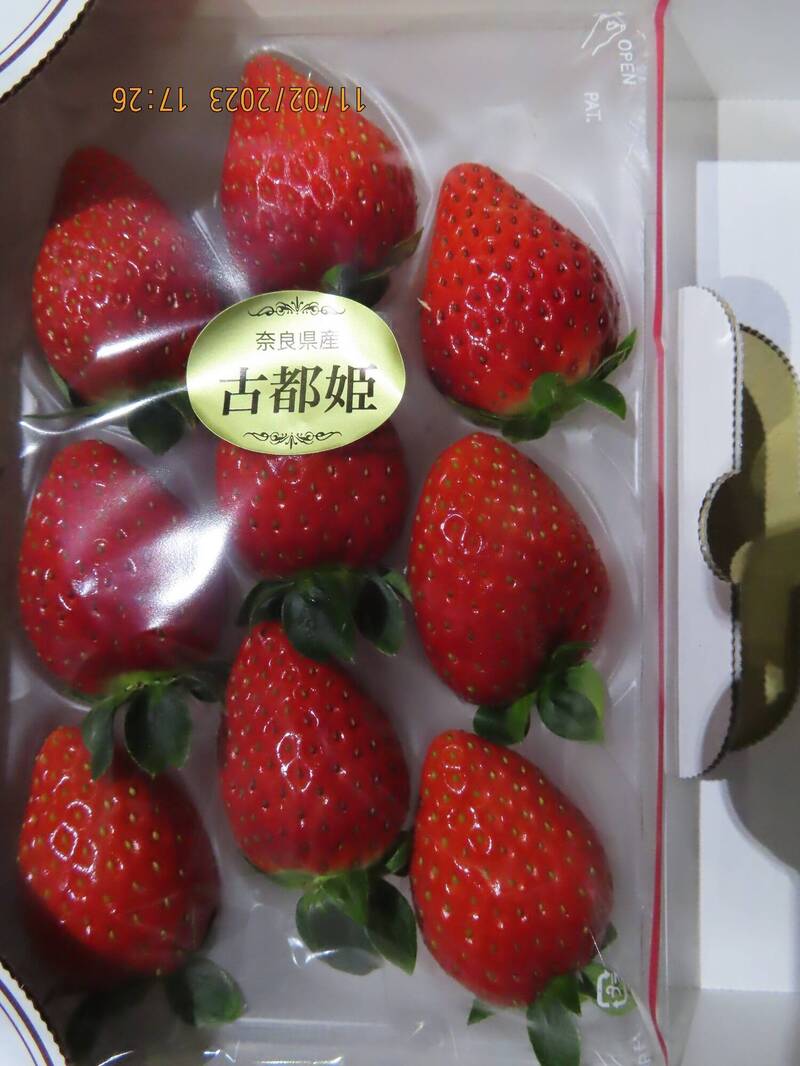Japanese strawberries have repeatedly violated the rules.
(Photo by reporter Wu Liangyi)
[Reporter Wu Liangyi/Taipei Report] The Food and Drug Administration announced the border inspection results today. Once again, fresh strawberries exported from Japan to Taiwan were seized with pesticide residues exceeding the standard. The two batches totaled 726 kilograms of violations, the highest record in a single week; Four batches of cherries exported from Chile exceeded the standard of pesticides, reaching as high as 51 tons.
Despite repeated violations, China's Food and Drug Administration still insists on opening up imports until the end of the strawberry and cherry season.
Japanese strawberries and Chilean cherries are seized and violated by our country almost every week, and the pesticide residues are all pesticides that are not allowed to be used in cherries and strawberries in my country.
The strawberry season is coming to an end, and many importers in my country are rushing to import a large number of strawberries before the end of the production season to compete with the domestic strawberry season food boom, but this has also led to an increase in border violations.
Please read on...
Japanese strawberries and Chilean cherries have many violations, but the Food and Drug Administration has repeatedly opened up imports on the grounds that "the suspension of imports must be decided by the Executive Yuan" and "involves high-level officials". However, violations are detected almost every week during the production season.
Due to the repeated violations of Japanese strawberries, the Japan Exchange Association also asked my country to relax the pesticide residue standards.
At present, China's Food and Drug Administration has not yet passed the approval. Once passed, it means that my country will allow higher doses and more types of pesticide residues on imported strawberries.
In addition to Japanese strawberries and Chilean cherries, this week’s border violation products also include “Mulberry Leaf Extract” exported from China, where the preservative salicylic acid was found to be illegal, “Indian Sona Rice” exported from India with pesticide residues violated; Vietnam’s exported “frozen Pesticide residue content in diced mango” did not comply with the regulations; Turkey’s export of “flake red pepper” contained illegal coloring agents; Indonesia’s export of “SUKRO Modified Beans (Roast Flavor)” detected a total of 13 µg/kg of aflatoxin B1 and 14 µg of total aflatoxin /kg.
The content of pesticide residues in Chilean exported "cherries" did not meet the regulations.
(Photo by reporter Wu Liangyi)
The content of mycotoxins in "modulated beans (barbecue flavor)" exported from Indonesia did not meet the regulations.
(Photo by reporter Wu Liangyi)
